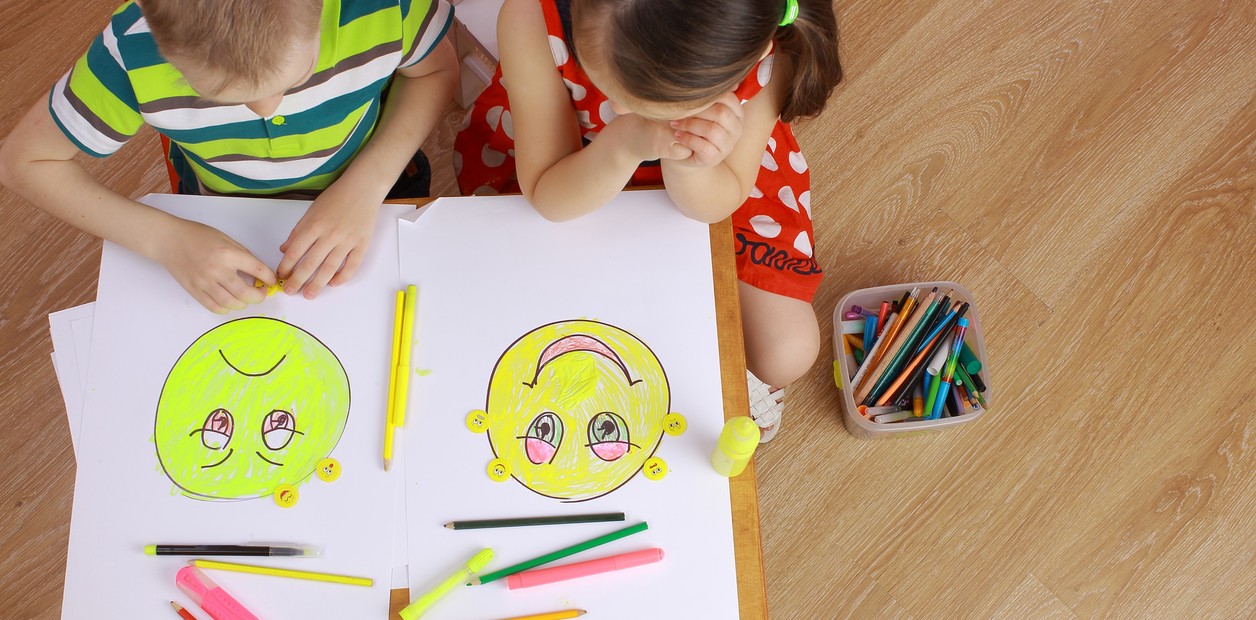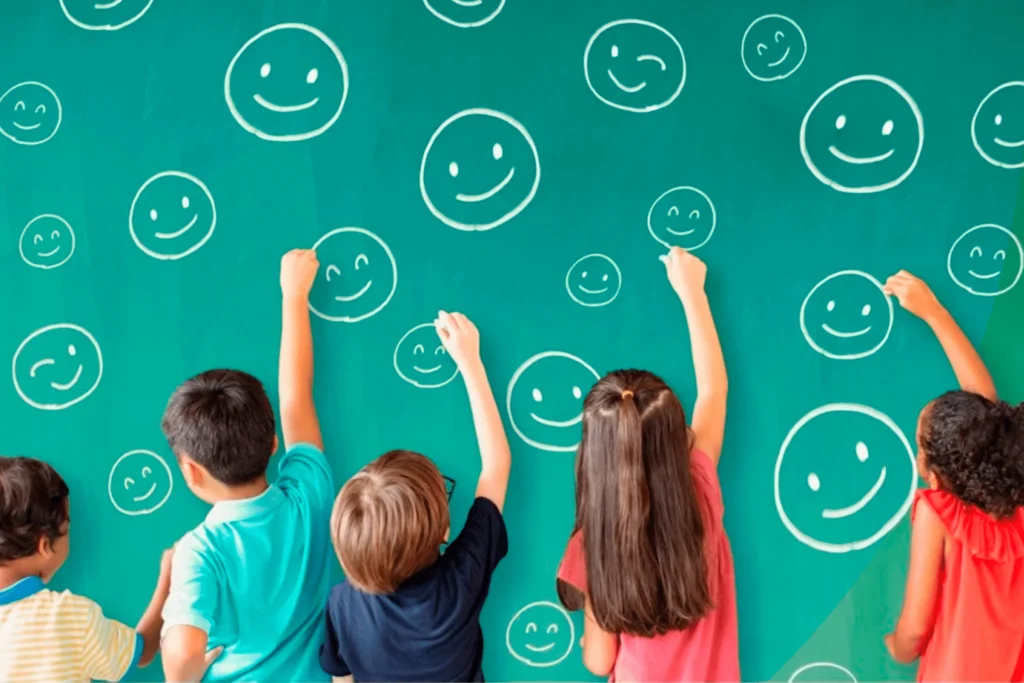
In today’s fast-paced world, emotional intelligence is key to understanding and guiding children’s development. Many parents and educators face daily challenges when helping young ones navigate complex feelings. This article tackles those challenges head-on by exploring practical methods, scientific insights, and daily strategies to nurture children’s emotional growth. Discover actionable tips that build resilience, empathy, and self-awareness, setting a solid foundation for lifelong success. Read on to empower your child to manage emotions effectively and excel both socially and academically.
Understanding Emotional Intelligence in Children
Emotional intelligence in children is the ability to recognize, understand, manage, and effectively use emotions. A growing body of research reveals that cultivating these skills early can positively influence academic performance, social interactions, and overall mental health. Recognizing emotions as vital signals and building empathetic connections are key elements that help children face everyday challenges.
Understanding emotional intelligence goes beyond simply naming feelings; it means creating an environment where children feel secure expressing themselves. Studies have shown that when children are encouraged to communicate their emotions openly, they build stronger self-esteem and better problem-solving skills. Parents and educators together play an essential role in nurturing these abilities.
For example, using storytelling and role-playing activities in classrooms or at home creates dynamic opportunities for children to analyze different emotional scenarios. These practices not only foster empathy but also teach respectful conflict resolution. Practical exercises and creative activities are crucial to helping young learners translate theory into real-life understanding, preparing them for complex social interactions.
5 Essential Growth Tips for Boosting Kids’ Emotional Intelligence
This section presents five practical and research-backed tips designed to enhance emotional intelligence in children. These strategies emphasize everyday interactions and are easy to implement at home or in school, ensuring continuous emotional development.

The first tip is to create an environment that welcomes open emotional expression. Parents and educators should encourage children to talk about their feelings regularly. By asking thoughtful questions during conversations and actively listening, adults help children understand that their emotions matter, building both resilience and self-worth.
Another key tip is to model healthy emotional behaviors. Children observe and imitate adults; when they see empathy, patience, and understanding in action, they are more likely to adopt these behaviors. Incorporating mindfulness exercises can also support children in staying calm and centered when facing everyday challenges.
Tip 3: Cultivate Empathy Through Interactive Play
Interactive play—such as role-playing games, group projects, and cooperative tasks—offers children fertile ground to practice empathy and understand diverse perspectives. Engaging in activities that require sharing and collaboration teaches valuable lessons about real-life interpersonal dynamics.
Guided discussions and reflective conversations after these activities encourage children to express their own feelings and recognize others’. These strategies not only boost social skills but also contribute significantly to overall emotional development.
Tip 4: Encourage Journaling and Reflective Writing
Journaling provides a private space for children to explore and articulate their inner thoughts and emotions, thereby enhancing self-awareness and emotional literacy. Regular reflective writing can reduce anxiety and improve mood regulation.
Parents can support this practice by suggesting topics or prompts that help children express moments of happiness, frustration, or confusion. This simple yet powerful habit lays the groundwork toward a deeper understanding of personal triggers and strengths.

Benefits of Enhanced Emotional Intelligence for Child Development
Children with high emotional intelligence reap multiple benefits, from improved academic performance to better interpersonal relationships. The ability to manage stress and concentrate during tasks contributes to school success, while effective communication helps in building meaningful social connections.
Experts agree that emotional regulation plays a crucial role in developing resilience. When children learn to recognize and control emotions such as anger or anxiety, they gain a strong foundation for facing life’s challenges. This progress also leads to increased empathy and cooperation in social settings.
Furthermore, developing emotional intelligence early in life can contribute to long-term mental health. Studies indicate that children with well-developed emotional skills are less prone to depression and anxiety. Enhanced stress management and positive coping mechanisms equip them with tools to thrive well into adulthood.
Practical Strategies & Daily Practices for Parents and Educators
Integrating emotional intelligence practices into daily routines is essential for sustained development. Both parents and educators have a unique opportunity to create environments that prioritize emotional growth. These strategies can easily be woven into everyday activities, ensuring continuous learning.
One practical daily habit is practicing mindfulness together, whether as a family or in the classroom. Simple breathing exercises or scheduled mindfulness breaks can significantly bolster a child’s ability to regulate emotions. Bringing mindfulness into everyday routines fosters a calm, focused mindset beneficial in all areas of life.
Another effective strategy is engaging in regular one-on-one conversations with children. Personal, reflective dialogue reinforces the message that each child’s feelings are important, helping them internalize good emotional practices.

Daily Practices: The Role of Routine
Establishing predictable routines provides children with a sense of security, which is crucial for emotional stability. Consistent meal times, study sessions, and bedtime rituals reduce anxiety and make transitions smoother.
During these moments, incorporate short periods for reflection and discussion. Transforming routine activities into learning opportunities reinforces the importance of structure in managing emotions.
Integrating Technology Mindfully
While technology is a staple in modern life, its use needs balance. Limiting screen time and promoting tech-free periods encourage richer face-to-face interactions and bolster empathy. When used intentionally—like apps that teach mindfulness or emotional literacy—technology becomes an effective complement to traditional teaching.
Parents and educators should set clear technology guidelines to ensure that digital tools enhance rather than hinder interpersonal relationships. Mindful use of technology can support modern educational practices without replacing personal engagement.
Additional Resources and Future Trends in Child Emotional Development
As our understanding of child emotional intelligence evolves, so do the tools and resources available to support it. Parents and educators can benefit from books, online courses, and workshops that focus on child psychology and emotional development.
For ongoing learning, reputable sources like the American Psychological Association and journals such as Child Development offer valuable insights. Staying updated with emerging trends and research is key to applying the most current and effective strategies in nurturing emotional intelligence.
Future trends suggest a growing integration of technology with traditional teaching methods. Virtual reality, gamified learning, and emotion recognition software are beginning to enhance learning experiences, making the acquisition of emotional skills more interactive and engaging.
Recommended Books and Online Resources

Notable books like ‘Emotional Intelligence’ by Daniel Goleman and ‘The Whole-Brain Child’ by Daniel J. Siegel and Tina Payne Bryson offer deep insights into developing emotional skills in children.
Online platforms such as Coursera and edX feature specialized courses in child psychology and emotional development, merging theoretical knowledge with practical application.
Emerging Research and Technological Innovations
Cutting-edge applications using artificial intelligence to assess emotional states are reshaping emotional learning. This blend of technology and psychology allows for personalized learning experiences that were once unimaginable.
Future innovations promise even greater precision in emotional assessments, enabling educators to tailor interventions more effectively. As these technologies mature, they will become indispensable tools in both academic and clinical settings.
Content Additional
Más allá de los consejos prácticos y las bases científicas discutidas, es fundamental entender el contexto social en el que se desarrolla la inteligencia emocional. El niño moderno vive inmerso en una era digital llena de oportunidades y desafíos. Los psicólogos señalan que gestionar las influencias digitales es esencial. Padres, educadores y los propios niños deben aprender a navegar por las redes sociales, foros en línea y plataformas interactivas con criterio. Construir una resiliencia digital es, sin duda, una extensión de la inteligencia emocional.
Estudios multiculturales revelan que la expresión y gestión de las emociones varía significativamente de una cultura a otra. En aulas diversas y en entornos familiares multiculturales, apreciar y respetar estas diferencias enriquece el repertorio emocional del niño. Esta sensibilidad cultural amplía sus horizontes, fomentando un ambiente de respeto y comprensión mutua.
La integración de técnicas de mindfulness en la vida cotidiana es otro aspecto crucial. Investigaciones recientes destacan que prácticas como la meditación, ejercicios de respiración y simples rutinas de estiramiento pueden reducir el estrés y mejorar la función cognitiva en los niños. Presentadas de una manera lúdica, estas actividades se convierten en hábitos duraderos que benefician el bienestar emocional.

Además, los educadores están experimentando con entornos de aprendizaje mixtos que combinan clases tradicionales con módulos interactivos basados en tecnología. Este enfoque híbrido ha mejorado la concentración y la regulación emocional, permitiendo que los niños practiquen estrategias para enfrentar situaciones imprevistas en un entorno seguro.
In conclusion, boosting emotional intelligence in children is not only vital for their personal well-being but also essential for thriving in an ever-changing world. By applying scientific insights and integrating practical strategies into everyday routines, parents and educators can nurture greater self-awareness, empathy, and communication skills. Remember that progress takes time and persistence, yet the benefits of raising an emotionally resilient child extend well into adulthood, leading to richer relationships and a more fulfilling life. Embrace these growth tips today and explore additional resources to continue your journey toward empowered emotional development.




